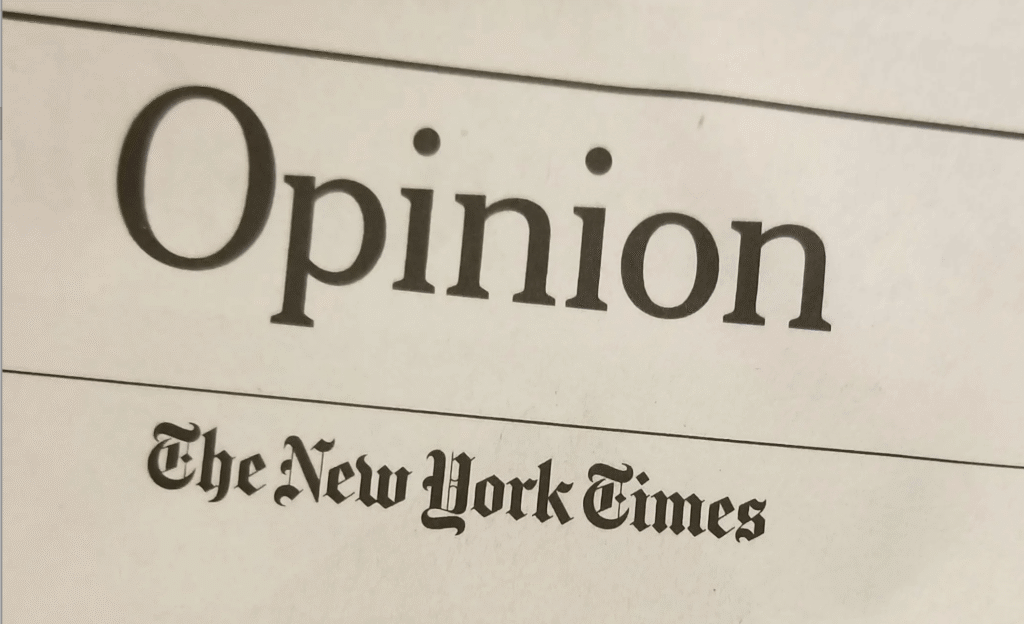“We are going to have to live here with one another, believing what we believe, disagreeing in the ways we disagree… To recognize that does not mean we don’t disagree.” — New York Times columnist Ezra Klein, speaking on his podcast
– – –
The data are in: We have far too much data. In our haste to advance and innovate, we’ve mistaken accumulation for insight. Perhaps, I thought, it is time to stop thinking altogether.
I began to suspect this on a cross-country flight, when an exuberant seatmate explained to me that he never reads, let alone consumes, the news. “Keeps the mind sharp and my head clear,” he said, before a segue into his meticulously detailed theory of the moon’s role in vaccine efficacy. His serenity was undeniable, infectious. His confidence, unshaken by evidence, was radiant even as he followed me into my Uber and, later, my home.
Today, the pattern repeats. My neighbor, a retired part-time crossing guard with no expertise in real estate beyond her rudimentary grasp of the Zillow search bar, tells me that homes aren’t selling because hydrangeas cause cervical cancer. An uncle, not heard from in ages, forwards me a decades-old conspiracy meme with the unshaking authority of a medieval monk scribing scripture. A college friend, their bowels deep into an ivermectin cleanse, insists the sun’s “hologram vibes” prove sunscreen is government propaganda.
These individuals are unbothered; immune to the turbulence of fact. While the rest of us chase revelation, saddled by the tangible information our five senses pipe into our brains, these dark luminaries coast along, happily certain that certainty itself is not necessary.
Behavioral economists might call this “selective non-uptake.” Enlightened, I call it liberation. Why wrestle with climate models or the (alleged) threat of a category-5 hurricane when one can simply… not believe in them? What a breath of fresh 158 mph air that must be.
Indeed, the know-nothing path is not merely easier; it is faster, frictionless—a seductive highway with no speed limit or signs or safety concerns for you or others whatsoever. I mean, WOWSA, you can really open it up when you’re not thinking about anything or anyone but yourself. No turn signals, no miles per gallon. Just belch coal, burn rubber, and drift into oncoming traffic with eyes closed, encased in from-the-gut emotional armor while The New York Times celebrates like you’ve taken the pole position at Monaco from Max Verstappen.
Doesn’t that sound so much more fun?
Consider also the miracle of the unresearched opinion. At noon, a new policy on gender is belched forth on Facebook by a former classmate steeped in multilevel marketing. By 12:03, an entire online cabal of experts has bloomed, gloriously unsullied by actual reading. The speed of their likes, shares, and copious misspellings outpaces reality itself. Knowledge can’t compete, which suggests it shouldn’t bother trying at all.
Some say this is dangerous. That history shows a healthy democracy requires spirited debate and an informed citizenry. But does it really? Honestly, I don’t know; I stopped studying history after that airplane ride.
Is this willful blindness dressed as philosophy? Perhaps. But isn’t willful blindness, at scale, the churning engine of unbridled optimism? To see the sea level rise onto a neighbor’s porch and vehemently proclaim, “Actually, it’s receding,” requires conviction bordering on Einsteinian genius.
So, let us embrace the know-nothings. Let us honor the neighbor hospitalized after a DIY bleach infusion, yet speaks with the chutzpah of a Nobel-winning immunologist. Let us applaud our uncle, whose chain emails form a cozy copse within a fact-free forest of uncertainty. They have found what most of society, burdened by evidence, can merely crave: a life untroubled by the inconvenience of reality.
Ignorance, in this light, isn’t the absence of knowledge. It is the presence of maximum comfort. And comfort, surely, is the highest form of understanding.
We don’t need an abundance of information. We need the courage—indeed, the audacity—to know absolutely nothing at all.

